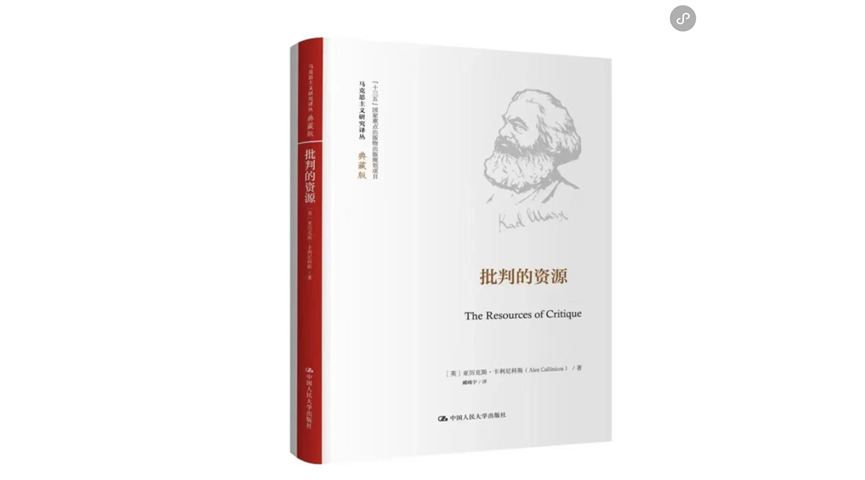 Research Update
Research Update
11
May
Written by British political philosopher Alex Callinicos and translated by Zang Fengyu, Dean of the School of Philosophy (RUC), The Resources of Critique is now officially published by China Renmin University Press.
According to Alex, “ The Resources of Critique reflects the general approach I have consistently adopted in my research. I have attempted to continue the traditions of Marxist, retaining its critical and revolutionary essence in dialogue with the vanguard of contemporary thought, while endeavouring to develop it in order to illuminate the precarious paths of contemporary history.” He also mentioned that “Professor Feng Yu, who has considerable expertise in Marxism and Continental European philosophy, worked with me as a visiting scholar at King's College London for more than half a year, and it is wonderful that he is devoting some of his valuable time to this translation. I also hope to have the opportunity to engage in more in-depth communications with Chinese scholars.”
Introduction: Alex Callinicos is a leading British political philosopher and Marxist political commentator, professor at King's College London and editor-in-chief of the journal International Socialism .
Zang Fengyu, Dean of the School of Philosophy, Renmin University of China, is mainly engaged in research of Marxist philosophy and political philosophy. Introduction to Marx's Political Philosophy , Study of the Internal Logic of the Classic Texts of Engels's Philosophy in Late Years , The Road to Wisdom are his representative works as an author. He is also the editor of several magazines including Philosophers and Enlightenment, Historical Perspective, and Marxist Dialectic . He has published over a hundred academic papers in this field.
Abstract: In the first part of the book, an examination of some of the most influential contemporary critical theoristsn such as Jürgen Habermas, Jacques Bidet and Luc Boltanski addresses the question of how to place social criticism in philosophy today. At the same time, given the limitations of the perspectives of all these theorists, the author describes an alternative approach in the second part of the book, which focuses on critical realist ontology, the Marxist theory of social contradiction, and the egalitarian view of justice. The main purpose is to show that the criticism of Marxism political economy continues to be useful in challenging the existing world order, and that it is also of contemporary value only if it remains in open and rigorous dialogue with other critical perspectives.